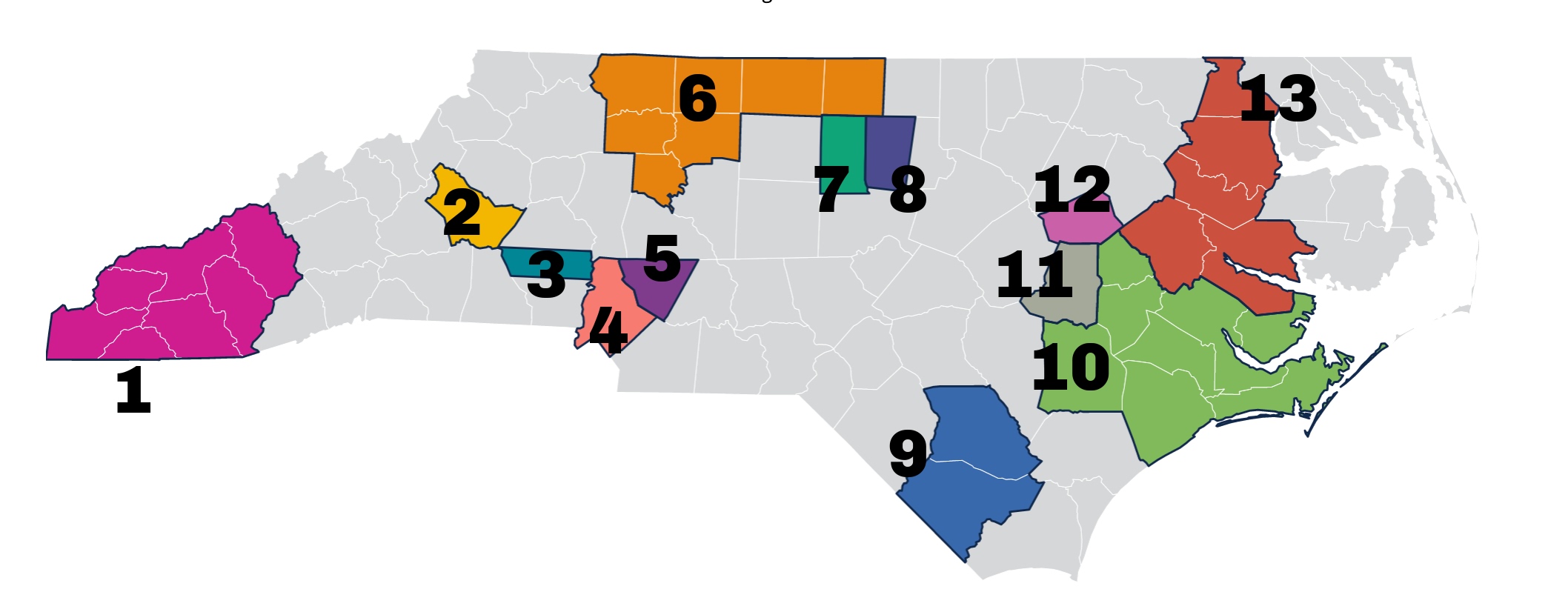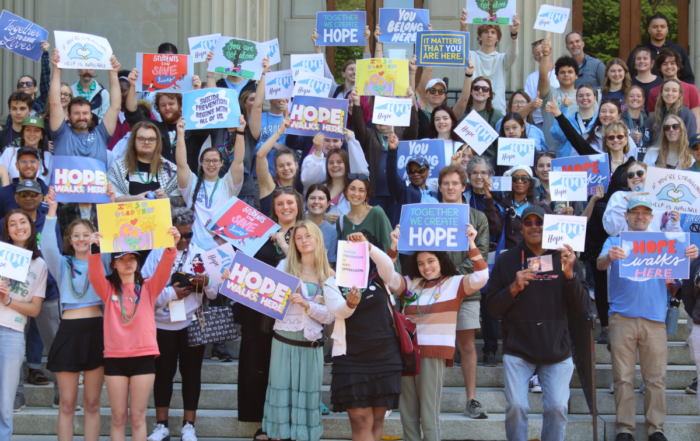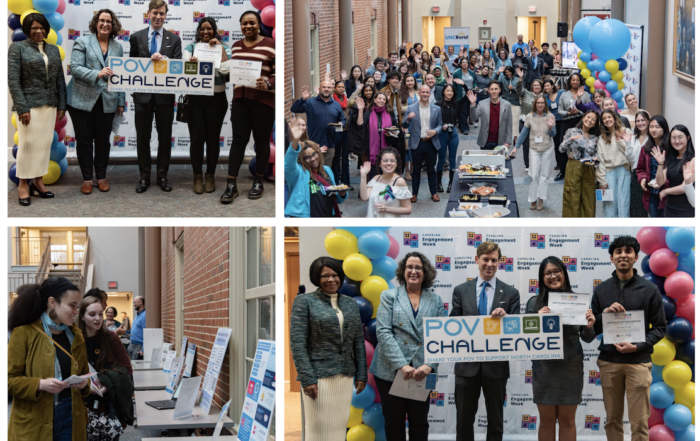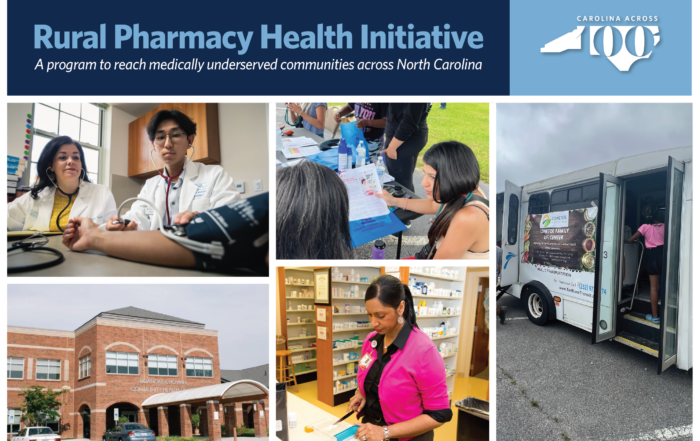Education | Employment
Centering Their Voices: Engaging with Opportunity Youth in the Aftermath of COVID-19
Maddie Roberts, Graduate Research Assistant
August 24, 2022
As pandemic restrictions ease, many North Carolinians are returning to the educational and employment routines of a pre-pandemic world. Despite these trends, Opportunity Youth—young adults between the ages of 16 and 24 who are not enrolled in school and are also not working—continue to face exacerbated consequences of COVID-19.
Research has shown that, compared to their peers who are involved in school and/or work, young adults who are disconnected from educational and employment settings face lower incomes, higher unemployment rates, and negative physical and mental health outcomes. These negative effects, compounded by the far-reaching impacts of COVID-19, have created more obstacles for Opportunity Youth to navigate than ever before.
As noted in our recent blog, Meeting Them Where They Are: Supporting Opportunity Youth in North Carolina, the rate of Opportunity Youth in America decreased 27% between 2010 and 2019. However, it is estimated that the effects of COVID-19 have undone nearly all the progress made in the last decade.
Given the significant challenges Opportunity Youth are facing in the aftermath of the pandemic, we are eager to begin working with the 13 community collaboratives who have been selected to participate in the Our State, Our Work program. Collectively, the community collaboratives comprise 37 counties which are home to nearly 40% of North Carolina’s Opportunity Youth population, around 57,900 individuals.
What’s next?
One way we will be supporting and informing the work of these collaboratives is by gathering the perspectives of young people directly.
Beginning this fall, with assistance from a team of public health graduate students from the Gillings School of Global Public Health, we will conduct a series of focus group conversations with Opportunity Youth. These will take place across the state in each of North Carolina’s eight Prosperity Zones.
Hearing the voices and experiences of Opportunity Youth firsthand will help us better understand how COVID-19 has impacted them and ensure that we can be effective as we work alongside the Our State, Our Work communities to improve the employment and educational opportunities offered to this population.
The focus groups with Opportunity Youth are part of a larger series of focus group conversations that are being conducted through a collaboration between the ncIMPACT Initiative and NCGrowth at the Kenan Institute for Private Enterprise. The larger series of conversations will include the voices of employers and non-Opportunity Youth (people over 25) who are not currently working. The goal is to gather multiple perspectives to understand why a wide range of people are not participating in the workforce and what is needed to get them engaged. Together, these focus group findings will inform the work of partners in the social service, education, business, policy sectors, among others.
Filling gaps in what we know
To prepare for these focus groups, I have spent this summer researching how to best engage with Opportunity Youth. While there is much research about how and why Opportunity Youth become disconnected from school and work, it is too early for there to be many studies that explore the impact of COVID-19 on this population. I found few studies that centered the voices of OY in sharing their experiences during COVID-19.
The upcoming focus groups will give us a chance to address this knowledge gap, and centering the experiences and knowledge of Opportunity Youth is critical because:
(1) Opportunity Youth must be part of the solution-making process.
More than anyone else, Opportunity Youth can provide integral thoughts and perspectives on how they have experienced education and the labor market, especially throughout the COVID-19 pandemic. As communities scramble to expand their labor markets, many are looking to Opportunity Youth. However, a community’s success with reengagement will depend on whether they have heard the voices of these young adults. As thoughtfully outlined in a 2018 report on Opportunity Youth, “the concept of youth engagement…involves young people as active agents in their own growth and development, rather than passive recipients of programs or services provided by others.”
During our focus groups, we will ask Opportunity Youth questions like:
(2) North Carolina cannot afford to leave these young people behind.
While the definition of Opportunity Youth focuses on 16-24-year-olds, Opportunity Youth often become disengaged in middle school, and this disconnection impacts individuals for the remainder of their lives.
Successfully reconnecting Opportunity Youth with educational and employment pathways leads to improved career outcomes, cognitive development, a greater sense of self-identity, and even happiness–all of which directly benefit North Carolina’s economy, local and state-level labor market, social sector, and criminal justice system. The financial health of our state and the well-being of all North Carolinians depends on access to meaningful opportunities.
This is especially true for our young people, and we all benefit when they can develop the skills needed to thrive. During each focus group, we hope to better understand the goals, passions, and motivations of North Carolina’s Opportunity Youth and how each community collaborative can support them as they transition into adulthood.
(3) Finding the right combination of community supports will be vital to the success of Opportunity Youth.
A 2022 study identified the outsized role community-based organizations play in re-engaging Opportunity Youth. Additionally, programs that include community partnerships, youth engagement, and ongoing supports are among the most effective methods of reconnecting Opportunity Youth to education and employment. As Opportunity Youth, employers, and individuals over the age of 25 who are not working or are underemployed share their thoughts and perspectives in focus groups, communities will be better prepared to meet the unique needs of Opportunity Youth in their region.
Sharing what we learn
Supporting Opportunity Youth is a priority for many North Carolina communities, and we are excited to support their work. Feedback shared by focus group participants will be used to develop resources that support, enhance, and refine the transformative work already taking place across the state. Stay tuned to our progress by visiting the resources section of the Our State, Our Work page for regular updates.
Stay tuned to see how the work unfolds and what we learn along the way
There are several ways to stay connected:
- Check back at the “Our State, Our Work” page for regular updates
- Sign up for email alerts here to get project updates and research findings
- Search #CarolinaAcross100 on Facebook, Twitter, Instagram, and LinkedIn to see the latest posts








